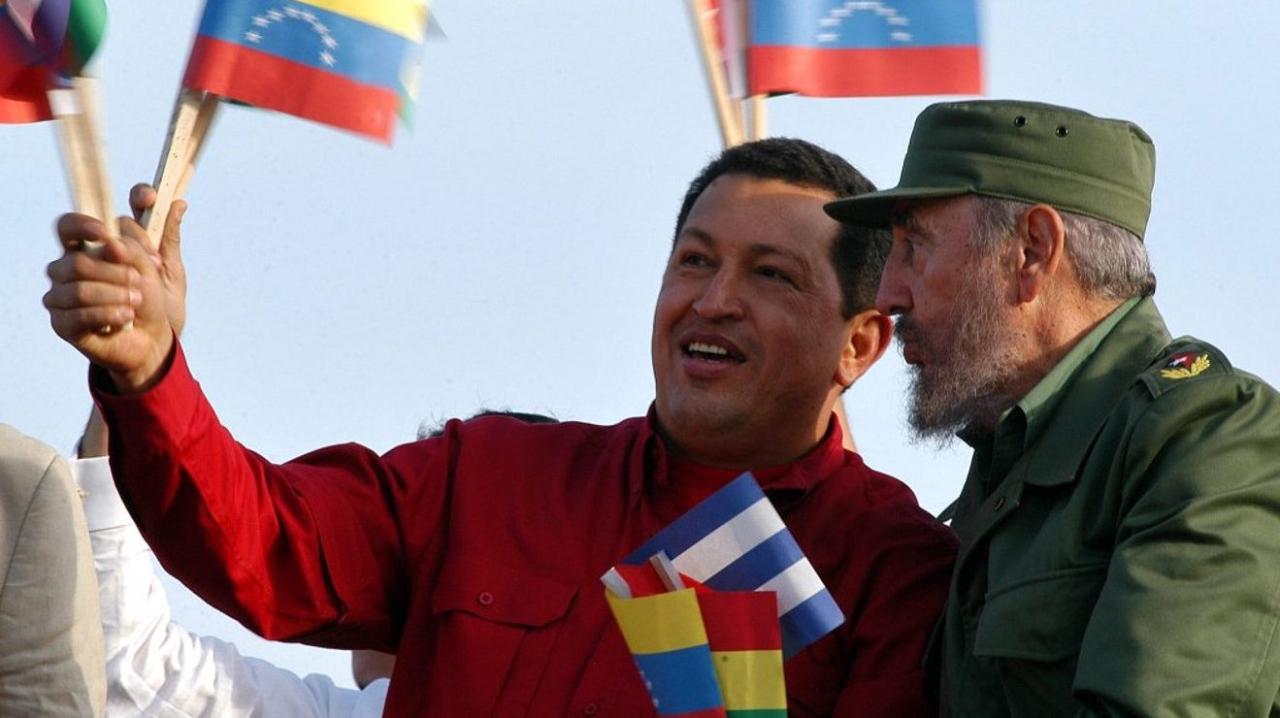November 2 marked two decades since the collaboration agreements reached between the late Fidel Castro and Hugo Chávez, an occasion celebrated with a joint broadcast by their respective state television networks. In an hour and a half of nonsensical bombast, Miguel Díaz-Canel and Nicolás Maduro ran down the "results" of both revolutions over these last 20 years, during which they have shared a common destiny.
With these agreements, in Chávez's words, Venezuela was going to "transition from capitalism to socialism." Fidel Castro's only intention, meanwhile, was to save the island's suffocating economy, choked by a system incapable of sustaining itself.
Specifically, el chavismo received thousands of doctors, teachers, sports coaches, art instructors and, above all, the know-how about to set up a totalitarian system. In return, the Castros received a fortune in oil.
Through the agreement Chávez was able to launch his well-known "missions", programs that unquestionably brought medical and social care to vast sectors of a population that was never invited to the feast of the 4th Venezuelan Republic, a corrupt and elitist regime that abused democracy so badly that it ended up spawning its own killer.
But, in return, Chávez attacked the Constitution and civil liberties, dragging Venezuela into the worst crisis in its history. Remarkably, this happened during heady times of plenty, when a barrel of oil, costing 25 dollars in 2003, suddenly shot up to 100, and even as high as 126, which was unprecedented. While during this period oil powerhouses like Norway and Saudi Arabia saved 9 and 7 billion dollars in sovereign funds, respectively, Venezuela’s external debt actually increased sixfold, a "great achievement" by 21st-century socialism.
In those happy days for Castroism, 100,000 barrels of crude arrived daily at Cuban ports, mainly Cienfuegos, where they were processed and re-exported for huge profits. Cuban personnel and consultants cost Venezuelans between 1 and 2% of their GDP, almost 10% of the value of their annual exports. This plundering resulted in - even in the midst of the oil boom - the international reserves of the Central Bank of Venezuela, which in 2012 stood at 30 trillion dollars, falling to less than nine trillion by 2018.
This decapitalization, plus the early assault on private property that the chavistas undertook, triggered levels of hyperinflation only comparable to those suffered by the German Weimar Republic in the 1920s - but while that happened in the wake of a world war, Socialist Venezuela was hit during peacetime.
With the normalization of oil prices and the abrupt fall in production due to bad business management, since 2015 transfers have been declining, but as Cuba's thirst for oil is unquenchable, in 2018 Venezuela actually saw itself in the humiliating situation of buying 440 million dollars of Russian crude to cover its "commitments" to Havana. In February 2020 23% of the production of the state-owned Petróleos de Venezuela was processed in Cuba, and until the middle of this year the amount of oil reaching the island totaled 348 million dollars.
We can appreciate what 348 million means for the island's financial situation when we consider that minister Ricardo Cabrisas begged for the deferral of 85 million in debt from the Paris Club, risking retaliation from increasingly impatient creditors.
In Venezuela, after 20 years of agreements the Caracas Nurses Association reports that their nurse to patient ratio has skyrocketed from 1-4 to 1-80 as their co-workers have joined the millions fleeing the socialist paradise. In addition, while Venezuelan health professionals survive on $10 a month in an almost "dollarized" country, the Maduro government pays $400 a month for each Cuban one, and 2,000 more doctors are expected to arrive from the island this year to help deal with the Covid-19 pandemic.
What has Cuba done with the more than $100 billion in revenue it raked in after 20 years of "brotherhood"? One could cite many things, but they all boil down to one: prop up Castroism. The mere existence of the regime today could not be explained without those agreements, as Cuba's economic situation has become increasingly dire as the "Venezuelan piñata" has run out of goodies.
The fact is that Chávez's money sustained an inoperative Cuban system, staving off its inevitable shift towards a more open economy; while Cuba's dependency is largely responsible for the poverty, famine, exodus and violence that Bolívar's homeland is enduring today.
Twenty years might be nothing, according to the lyrics of famous Carlos Gardel song, but for Venezuela they have been hell, and have only delayed what for Cuba will be a rude but vital awakening.
